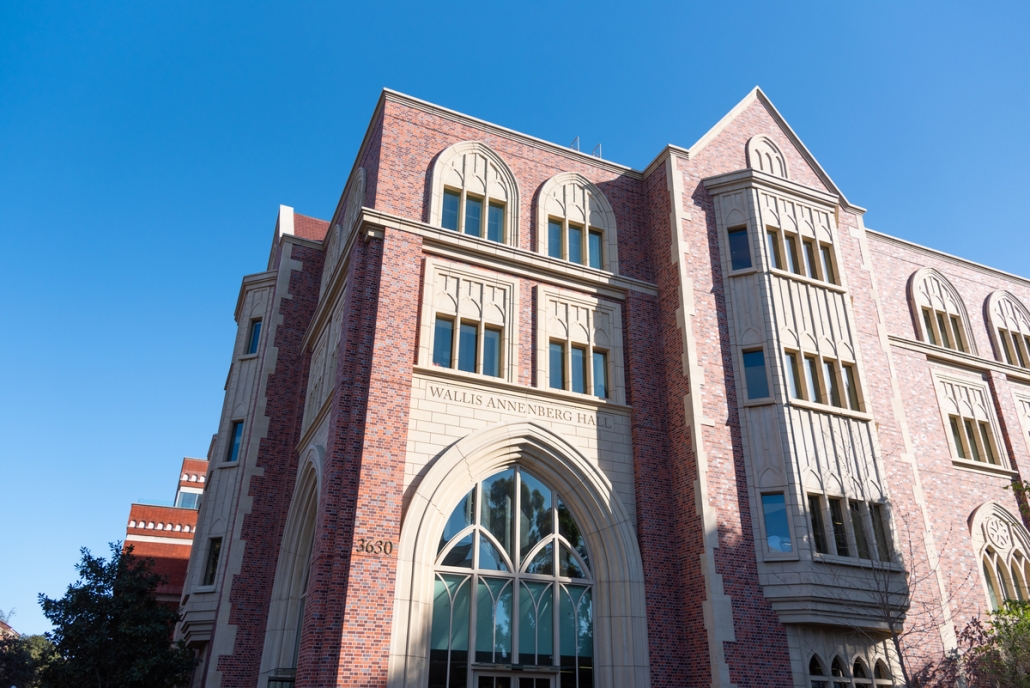Zoom security measures tighten to prevent unwanted participants

New security protocols have been implemented for Zoom online classes, Chief Information Officer Douglas Shook announced to faculty and students Wednesday. The new policies come after two lectures in the Annenberg School for Communication and Journalism and Dornsife College of Letters, Arts and Sciences were interrupted by unknown participants using derogatory and racist language.
“We are deeply saddened that our students and faculty have had to witness such despicable acts,” President Carol Folt and Provost Charles Zukoski wrote Tuesday in a schoolwide email. “When students and faculty gather, there is a trust that it is a safe environment. This trust has been breached by people intentionally trying to cause great harm at a time when our entire community is trying to cope with a global health crisis.”
Simone Brown, a freshman majoring in communication, experienced one of these disruptions in her “Communication and Social Science” class and said that her lecture began normally as clinical associate professor of Communication Jillian Pierson asking students about their well-being. While Pierson was speaking, an unknown voice kept aggressively telling her to hurry up.
Although Brown considered the remarks to be disrespectful at the time, she didn’t think anything of it. However, as the lecture progressed, the situation escalated.
“I thought that was just kind of rude, but I didn’t think it was anything unusual — I thought there was maybe someone in the class who thought it was a joke or something,” Brown said. “When she shared her slides on the screen to show us her notes, that’s when people started drawing on the screen. The first one they drew genitalia and then … wrote the n-word.”
As Pierson attempted to continue the class by erasing the offensive images and removing the perpetrator from the Zoom session, the person continued to jump back into the lecture. As this occurred,students furiously texted in the chat to help Pierson identify the hacker in her more than 100-person class. The classroom was no longer able to progress normally.
After multiple disruptions, Pierson decided to end the lecture 30 minutes early.
“[Pierson] said, ‘I’m really sorry guys, I’m so sorry this is happening. I’m going to end the class now. Look out for a [lecture recording] on Blackboard,’” Brown said. “And then you could hear the person who was speaking the whole time go, ‘Yeah, you end the class, end the class.’”
Once the class ended, Brown said she felt shaken up by the experience.
“I live in California, so my entire state is on lockdown so it’s been a bit weird, and I was hoping to get back into more of a regular routine with classes restarting, but [the disruption] was definitely pretty jarring,” she said.
To prevent future incidents, Shook announced that Information Technology Services has enabled the waiting room feature for all USC Zoom classes and meetings.
With the new feature, professors and meeting hosts will be able to determine who to admit to each virtual session. If a disruption occurs, faculty are advised to remove the participant from the class and use the “lock” feature to block any additional people from entering the lecture.
Brown, who had her first Zoom class with the new protocol Wednesday, said she believes the University is making the right decision to implement increased security measures. However, professors who are currently struggling with the technological switch to virtual instruction may face additional issues with the new features.
“I definitely have a few [professors] who … might forget to admit students and have people just waiting in the waiting room,” Brown said. “I feel it’s worse [not to] explore these extra security options, [than to] make sure that doesn’t happen in the future.”
According to the Los Angeles Times, school districts including the Conejo Valley Unified School District have also experienced incessant ‘Zoom-bombing’ by unknown users who disrupt online sessions with racial slurs and pornography. Universities like UC Berkeley have also advised faculty and students on new safety protocols to prevent similar incidents from happening.
According to the email sent by Folt and Zukoski, the University will remain on alert to prevent classroom interruptions from reoccurring.
“We will be vigilant in determining who was responsible for these actions, and we are doing everything in our power to stop it right away,” the email read.

